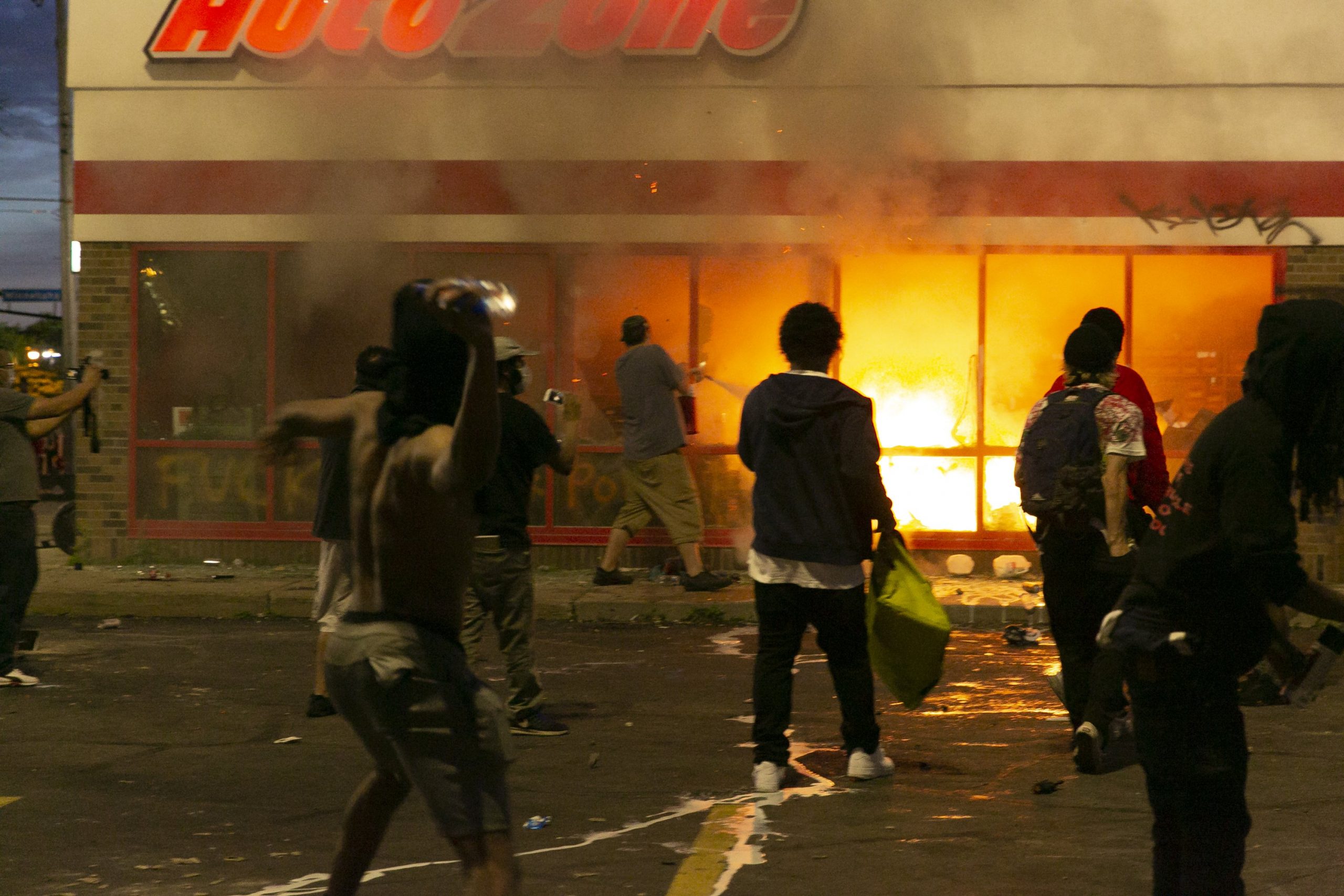Minneapolis has been brewing this storm-in-a-teacup story of racist police long before George Floyd was murdered. Nine of the eleven councillors were primed and ready to outvote Minneapolis’s mayor, Jacob Frey, who would not commit to abolishing the police at a demonstration last Saturday where protesters shouted, “Go home, Jacob!” and “Shame!” until he left. The Guardian reported on the majority position of the council to abolish the city’s police force.
“In Minneapolis and in cities across the US, it is clear that our system of policing is not keeping our communities safe,” said Lisa Bender, the Minneapolis city council president, at the event.
“Our efforts at incremental reform have failed, period. Our commitment is to do what’s necessary to keep every single member of our community safe and to tell the truth: that the Minneapolis police are not doing that. Our commitment is to end policing as we know it and to recreate systems of public safety that actually keep us safe.”
Lucky for you and I the outline document for community based law and order is easily accessible. Here are examples of the finer points for you to make up your own mind about swapping police for community based law and order. From the Q&A section, these are the first three questions and extracts from the answers.
1. “Won’t abolishing the police create chaos and crime? How will we stay safe?
…Rather than strangers armed with guns, who very likely do not live in the neighborhoods they’re patrolling, we want to create space for more mental health service providers, social workers, victim/survivor advocates, religious leaders, neighbors, healers, and friends – all of the people who really make up the fabric of a community – to look out for one another.”
Apparently the community will keep themselves safe. Yeah, like that’s going to work when the strongest factions will implement their practices to the detriment of others. Gee, I wonder why Ilhan Omar is all over this? Community based law and order doesn’t make sense because if the community was any good at it surely there wouldn’t be crime now? It also assumes that the police (strangers with guns) are the problem and the facts don’t support that view.
2. “But what about armed bank robbers, murderers, and supervillains?
Crime isn’t random. Most of the time, it happens when someone has been unable to meet their basic needs through other means. By shifting money away from the police and toward services that actually meet those needs, we’ll be able to get to a place where people won’t need to rob banks.”
Minneapolis will adopt the socialist policy of wealth redistribution because feeding hungry criminals using the money that would have gone into police salaries will stop looting and theft. Here we call this handout the dole and last time I looked it wasn’t stopping crime.
3.”But why not fund the police and fund all these alternatives too? Why is it an either/or?
It’s not just that police are ineffective: in many communities, they’re actively harmful. The history of policing is a history of violence against the marginalized – American police departments were originally created to dominate and criminalize communities of color and poor white workers, a job they continue doing to this day. The list has grown even longer: LGBTQ folks, disabled people, activists – so many of us are attacked by cops on a daily basis.
This last answer is so full of factual errors and prejudice that it doesn’t need further attention. But spare a thought for the vulnerable and poor living in Minneapolis who can’t afford to move away. They will be without protection in what will undoubtedly become a hot bed of lawlessness.
Perhaps this is an opportunity for the BFD’s moderator HR (clearly an entrepreneur in another life), who has recognised a commercial opportunity in fencing the city of Minneapolis (after the police have been disbanded) and offering armed tourists guided tours. They would be offered a money back guarantee of a shoot-out, a real life version of the Hunger Games.

If you enjoyed this BFD article please consider sharing it with your friends.

